- Home
- Margaret Pemberton
Moonflower Madness
Moonflower Madness Read online
Bello:
hidden talent rediscovered
Bello is a digital only imprint of Pan Macmillan, established to breathe life into previously published classic books.
At Bello we believe in the timeless power of the imagination, of good story, narrative and entertainment and we want to use digital technology to ensure that many more readers can enjoy these books into the future.
We publish in ebook and Print on Demand formats to bring these wonderful books to new audiences.
About Bello:
www.panmacmillan.com/bello
Sign up to our newsletter to hear about new releases events and competitions:
www.panmacmillan.com/bellonews
Contents
Margaret Pemberton
Chapter One
Chapter Two
Chapter Three
Chapter Four
Chapter Five
Chapter Six
Chapter Seven
Chapter Eight
Chapter Nine
Chapter Ten
Chapter Eleven
Chapter Twelve
Chapter Thirteen
Chapter Fourteen
Margaret Pemberton
Moonflower Madness
Margaret Pemberton
Margaret Pemberton is the bestselling author of over thirty novels in many different genres, some of which are contemporary in setting and some historical.
She has served as Chairman of the Romantic Novelists’ Association and has three times served as a committee member of the Crime Writers’Association. Born in Bradford, she is married to a Londoner, has five children and two dogs and lives in Whitstable, Kent. Apart from writing, her passions are tango, travel, English history and the English countryside.
Chapter One
The British Residency in Chung King was ablaze with flowers. Yellow jasmine climbed the walls, honeysuckle tumbled down the steps of the entrance, white anemones with lamp-black centres surged from terracotta pots, deep drowned-purple pansies vied for space with drifts of golden fabaria. Beyond a tangle of aged roses the broad, glittering curve of the Yang-tze River could be glimpsed, surging on and down to the distant sugarloaf gorges of Ichang.
Gianetta Hollis sighed and pushed a glossy black tendril of hair away from her face. The garden she sat in was supremely beautiful. The light had the pearl-like translucence peculiar to China, the air was heavy with scent and the only sound to be heard was the gentle tinkling of pagoda bells. And she was bored. Unspeakably, unimaginably bored.
She had been in China for nearly a year and apart from the week’s voyage by steamer up the Yang-tze from Shanghai to Ichang and the thrilling, perilous five-week journey by junk through the gorges and ravines that separated Ichang from Chung King, she had seen nothing of the country. Nothing at all.
She sighed again, this time with rising impatience. It really was ridiculous for her aunt to be so over-protective of Serena and herself. It was five years now since murderous rebels had rampaged through the country vowing to kill every foreigner on Chinese soil. Her aunt and uncle had been living in Peking and for fifty-five terrifying days had been besieged, with over a hundred other Europeans, inside the Legation Quarter. They had held the rebels at bay with great cost of life until, at last, an international rescue force had marched into the city and relieved them.
It was an experience her aunt would never forget. Although the country was now calm again, she would not allow her daughter or her niece to venture beyond the Residency compound into the narrow crowded streets of Chung King or the wild, unexplored countryside beyond.
To Gianetta’s chagrin, their only journeys were to the nearby Anglican Mission, and even then they were obliged to travel by sedan-chair and under heavy protective escort. It was not what Gianetta had imagined when she had dreamed of China. She had envisaged exotic vistas; horseback rides into the foothills of mysterious mountains; magical walks through the courtyards of ancient temples; adventure, danger, excitement. Instead she was obliged to spend her days in a monotony as unrelieved as the one she had left behind at Sutton Hall, her aunt and uncle’s family home in Lincolnshire. Her pleasures were now, as then, circumscribed by Serena’s pleasures.
If Serena wanted to go on a picnic or an expedition to a local beauty spot, then of course such expeditions were arranged. If Serena wished to ride, suitable horses and grooms were speedily found. If Serena wished to take up the fascinating new pastime of photography, then the very latest whole-plate camera was purchased for her use. Unfortunately for Gianetta, it was very rare that Serena expressed the wish to do anything as exciting as ride or experiment with photography. She was easy-tempered, sweet-natured and unimaginative. As Gianetta’s aunt was often heard to say with relief, Serena was as dissimilar to her cousin as chalk from cheese.
Gianetta kicked a smooth white pebble away with the toe of a neatly-booted foot and watched as a lizard scurried away, seeking fresh cover. What her aunt said was true. She and Serena were dissimilar in temperament, but that was only to be expected. Serena was totally English and had been brought up in the calm atmosphere of the Lincolnshire fens. She, Gianetta, was half-Italian and had, for the first twelve years of her life, been brought up in the exciting, mercurial atmosphere of the Villa Simione, overlooking Lake Garda.
Her father, Edward Hollis, had embarked on a Grand Tour in 1887 and had travelled no further than Florence when he had fallen in love not only with the Duomo, the church of Santa Croce and the slow-moving waters of the Arno, but also with the bewitching and incomparably beautiful Lucrezia Segatti.
It had not been a love affair looked fondly on by either family. The Hollises had been appalled at the thought of Italian blood sullying their ancient family tree. The Segattis had been equally aghast at the prospect of their high-born daughter throwing herself away on an Englishman with only a minor title. Both familes had agreed on one thing only. There would be no marriage. It was then that Edward Hollis had shown his true mettle. He had ridden at night from his penzione in Florence to the Segatti’s family villa and he had urged Lucrezia to climb down from her room and elope with him.
The result had been a marriage that the Hollises had eventually accepted only grudgingly, the Segattis not at all. Twelve years later, an unrepentant Lucrezia had succumbed to tuberculosis. Her heart-broken husband, riding too recklessly in an effort to assuage his grief, had been thrown from his horse and had never recovered consciousness.
Gianetta, aged eleven, had been obliged to accept the offer of a home in England with a cousin she had never seen.
All in all it had not been so very dreadful. She had not been beaten or starved, but she had hated the cold, flat greyness of the Lincolnshire fens and the cheerlessness of a house which, during her aunt and uncle’s long absences in China, was inhabited only by Serena, Serena’s governess, and an army of servants.
It was Serena who had made it bearable. She had been overjoyed at having her loneliness relieved by Gianetta’s arrival, and greeted her as if she were a long-lost sister. Five years later, at Gianetta’s urging, Serena had written to her parents asking if, accompanied by Gianetta, she could travel out to join them. The reply, to Serena’s nervous apprehension and Gianetta’s ebullient delight, had been in the affirmative.
They had sailed from Gravesend aboard the SS Eastern Queen, chaperoned as far as Hong Kong by Sir Archibald and Lady Plaxtol, old friends of the Hollises, returning to China after a year’s furlough. Also accompanying them was their son Henry, a pleasant-faced, mild-mannered young man who had recently been ordained into the Church of England. In Hong Kong they had said goodbye to the Plaxtols, continuing their journey to Shanghai under the protective eye of the ship’s captain.
Shanghai had been
all that Gianetta had dreamed it would be. The narrow streets were crowded with Chinamen, their hair worn in long single pigtails down their backs. Rope-dancers span and twirled, pedlars cried their wares, jugglers and acrobats vied for attention with storytellers and scribes. Gianetta had sighed with rapture at the strangeness of it all, oblivious to the heat, and the stench of garlic, tobacco and stale, unwashed bodies.
Her rapture had been short-lived. Her uncle who had met them off the boat, had no intention of delaying his return to Chung King by spending unnecessary time in Shanghai. At seven the next morning they had boarded the steamer that was to take them to Ichang. A week later, they had transferred from the steamer to the junk for the long, laborious last stage of their journey up the Yang-tze to Chung King.
Since then, to Gianetta’s chagrin, there had been no exploratory excursions into the surrounding countryside. For her, China was the carefully tended grounds of the Residency. It did not help that Serena was happy to accept this restriction. With a gesture of impatience, Gianetta flicked a fluttering butterfly away with her hand and rose to her feet. For all the excitement she was experiencing, she might just as well have stayed in Lincolnshire. At least there she had been able to go for long, unaccompanied walks. Here, there was no outlet for her frustrations and she was rapidly beginning to feel as if she were in an exotic, flower-filled prison.
‘Gianetta! Gianetta!’
She turned her head as Serena, in a high-necked white lace blouse and an ankle-length turquoise skirt, ran lightly down the shallow stone steps towards her.
‘What do you think? We are to have visitors this evening. A Mr Zachary Cartwright, who Papa says is a very famous botanist, and his cousin, Lord Rendlesham.’
Serena’s corn-coloured hair was brushed away from her face in a sleek chignon, her grey-green eyes alight with pleasure at being the bearer of such agreeable news.
Gianetta frowned, determined not to be shaken out of her despondency so easily. Lord Rendlesham was eighty. She knew, because his birthday had been announced not long ago in The Times. His friends would no doubt be equally aged and uninteresting. All her uncle’s dinner guests were.
‘Is that the only reason for your good humour?’ she asked, her eyes going to the tell-tale envelope protruding slightly from the pocket of Serena’s skirt.
Serena laughed and linked her arm as they began to walk back towards the house.
‘No,’ she said, a light blush touching her cheeks. ‘I received another letter from Henry Plaxtol this morning. He is returning to England very soon, but is visiting Ichang and Chung King before he does so.’
‘And is that such wonderful news?’ Gianetta asked unimpressed.
The blush in Serena’s cheeks deepened. ‘Yes,’ she said, unconcealed happiness in her voice. ‘It is for me.’
Gianetta stood still on the flower-edged path and stared at her in disbelief. ‘You can’t possibly be in love with him!’ she said incredulously. ‘He’s a clergyman!’
‘I know,’ Serena said, with all the serenity of her name, ‘but he is an only son and Sir Archibald is a very old friend of Papa’s. I think he and Mama would be quite pleased if … if anything should come of our friendship.’
Gianetta felt the blood drain from her face. If Serena married Henry, then she would return to England. What would happen to her if she did so? She couldn’t imagine for a moment that her aunt would invite her to stay on in Chung King, and if she didn’t, what were the alternatives? A return to Sutton Hall, this time without the benefit of Serena’s companionship? Or even worse, a life as a lovingly tolerated guest in Serena’s marital home, for Serena was sure to invite her to live with her. The prospect filled her with horror. Dearly as she loved Serena, she could not bear the thought of living always in her shadow, a voyeur of her happiness, her only practical role that of aunt to Serena’s children.
‘Come along,’ Serena said good-naturedly, taking no offence at Gianetta’s lack of enthusiasm for her news. ‘The Chinese artist Mama has engaged for our art lessons has arrived. He looks terribly nice. Very small and very nimble.’
Gianetta’s interest was aroused. The tutor had been engaged to instruct them in the art of Chinese flower painting, and she had already determined to ask him if he would also give them instruction in landscape painting. If he did so, then her aunt would surely have to give permission for them to journey a little way out of Chung King, so that they could study and paint some suitable views.
‘Mr Li is waiting for you in the drawing-room,’ her Aunt Honoria said, as they entered the Residency’s cool shade.
She was a tall, statuesque woman who possessed none of her daughter’s grace or beauty. As if to compensate for these deficiencies, she took great pride in always doing her duty, no matter how disagreeable that duty might be. It was wifely duty that kept her in China, a country she hated, and it was family duty that had obliged her to give a home to Gianetta. She had no sense of humour and seldom smiled. The fact that she was at the moment looking extremely pleased with herself, as if she had just received news which had given her great satisfaction, filled Gianetta with foreboding. On a nearby desk top, an envelope identical to the envelope that Serena had received lay open and empty. Her foreboding deepened. Henry Plaxtol had not only written to Serena, he had written to her parents as well. And if her aunt’s demeanour was anything to go by, his communication had been well received.
‘Has Serena told you we are having guests to dine this evening?’ her aunt asked, giving Gianetta the rare benefit of her attention. ‘Mr Zachary Cartwright is one of England’s leading botanists. Queen Victoria consulted him frequently and I have it on very good authority that, since her death, he has continued in royal favour. He has been a guest of King Edward’s at both Sandringham and Balmoral.’
Gianetta strove to look suitably impressed and must have succeeded, for her aunt now turned her attention towards Serena. ‘Papa is at present on a visit to the Chinese consulate, but when he returns, both he and I would like to have a word with you.’ She smiled and patted her daughter’s arm with maternal tenderness. ‘Alone and in Papa’s study if you please, Serena.’
The flush that had touched Serena’s cheeks in the garden now coloured them once again.
‘Yes, Mama,’ she said, her happiness so transparent that Gianetta hated herself for her own, horrified reaction to her aunt’s words.
How on earth could Serena be in love with a nonentity like Henry Plaxtol? It didn’t seem possible. True, they had spent long periods of time in each other’s company aboard the Eastern Queen, but she had assumed that that had been mere politeness on Serena’s part. She looked across at her cousin and at the hot tide of colour in her cheeks, and was forced to accept that it had not been politeness. Unbeknown to her, Serena had fallen in love, and it was a love story that was apparently going to have a happy ending. For Serena, but not for herself. She thought of her own future if Serena married; for Sutton Hall and the damp Lincolnshire fens. She shuddered. Somehow, somewhere, there must be an alternative for her, but as she went into the sun-filled room with Serena to meet Mr Li, try as she might, she could not think of one.
The art class temporarily took her mind off her problem. She had always excelled at drawing and was fascinated by the delicacy and precision of Chinese painting. To enable him to judge their talent, Mr Li asked them to sketch a rose that was standing in a porcelain vase on a small enamelled table. Serena’s execution was, as he had imagined it would be, competent but uninspired. Gianetta’s filled him with stunned surprise.
In only a few spare lines she had caught the overblown lushness of the rose to perfection, and the anatomical details of petal, leaf and calyx were pleasingly correct.
‘I shall come again,’ he said, bowing his head as he took his leave of them, ‘I shall come again at the end of the week.’
‘When you come again, Mr Li, could you instruct us in landscape painting?’ Gianetta asked. ‘Something in the style of Kuan T’ung or Wang-Hui?’
Mr Li blinked. He had had the privilege of teaching art to the English daughters of consuls and merchants in Peking and Shanghai as well as Chung King, but he had never before taught anyone who had the slightest knowledge or, he suspected, interest in his country’s art or artists.
‘I have seen a copy of Wang-Hui’s The Colours of Mount T’ai-hang in a book,’ Gianetta continued winningly, ‘and I think it very beautiful.’
He beamed at her. ‘Indeed it is, Miss Hollis, very beautiful,’ he said warmly.
‘Perhaps we could attempt something similar?’ Gianetta continued. ‘From above Chung King there must be many splendid views of the river.’
Mr Li nodded his head. ‘Many, many,’ he agreed. ‘Chung King has a number of wonderful views.’
‘Then I will tell Lady Hollis that you recommend we journey out into the hills for our next lesson,’ Gianetta said, well satisfied with the results she had achieved. ‘There is no need to worry about bearers, Mr Li. There are plenty here, on the Residency staff.’
Mr Li bowed again. She was unusual, this dark-haired English girl. There was no condescension in her voice when she spoke to him, no superiority in her manner. He had not met such an English girl before, and his heart warmed towards her.
‘We will paint landscapes in the manner of the ancients,’ he said in his almost flawless English. ‘Landscapes that will pierce the heart and startle the eye.’ With that amazing promise, he took his leave of them.
‘What an incredible little man,’ Serena exclaimed, laughing. ‘Do you think Mama will give permission for us to go up into the hills?’
‘I don’t know,’ Gianetta said truthfully, ‘but we can at least try. Nuns must have more freedom of movement than we do. Do you know that we haven’t been anywhere, apart from the Anglican Mission, for eight months.’
‘But as far as Mama is concerned there is nowhere for us to go,’ Serena said with sweet reasonableness. ‘Chung King is the most remote outpost that any consul can be posted to. There are no other diplomats stationed here, no European families in residence, no-one for us to pay visits to. Believe me, Gianetta, Mama and Papa hate it almost as much as you do, but Mama says that it is a posting that has to be endured. It is only until the end of the year. Then Papa will be relieved of his duties and his next posting will be somewhere far more congenial. Kabul perhaps, or Delhi.’

 The Summer Queen
The Summer Queen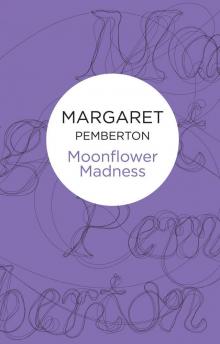 Moonflower Madness
Moonflower Madness The Londoners
The Londoners The Flower Garden
The Flower Garden Yorkshire Rose
Yorkshire Rose Vengeance in the Sun
Vengeance in the Sun Zadruga
Zadruga Beneath the Cypress Tree
Beneath the Cypress Tree Magnolia Square
Magnolia Square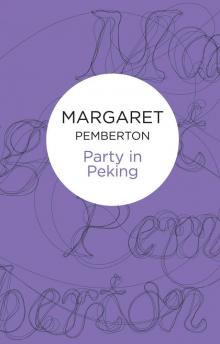 Party in Peking
Party in Peking Lion of Languedoc
Lion of Languedoc Forget-Me-Not Bride
Forget-Me-Not Bride The Guilty Secret
The Guilty Secret Rendezvous With Danger
Rendezvous With Danger A Season of Secrets
A Season of Secrets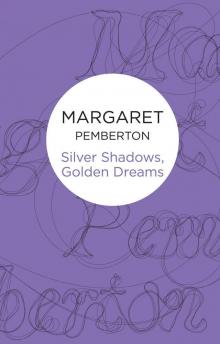 Silver Shadows, Golden Dreams
Silver Shadows, Golden Dreams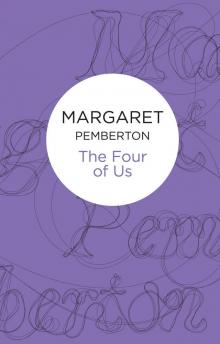 The Four of Us
The Four of Us Devil's Palace
Devil's Palace Never Leave Me
Never Leave Me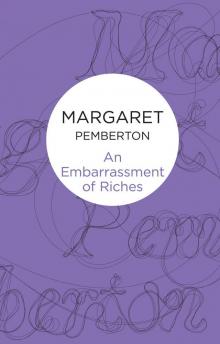 An Embarrassment of Riches
An Embarrassment of Riches African Enchantment
African Enchantment White Christmas in Saigon
White Christmas in Saigon Coronation Summer
Coronation Summer A Multitude of Sins
A Multitude of Sins Tapestry of Fear
Tapestry of Fear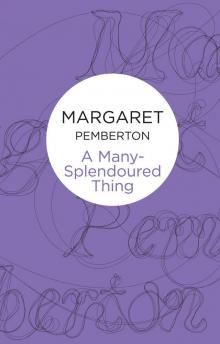 A Many-Splendoured Thing
A Many-Splendoured Thing